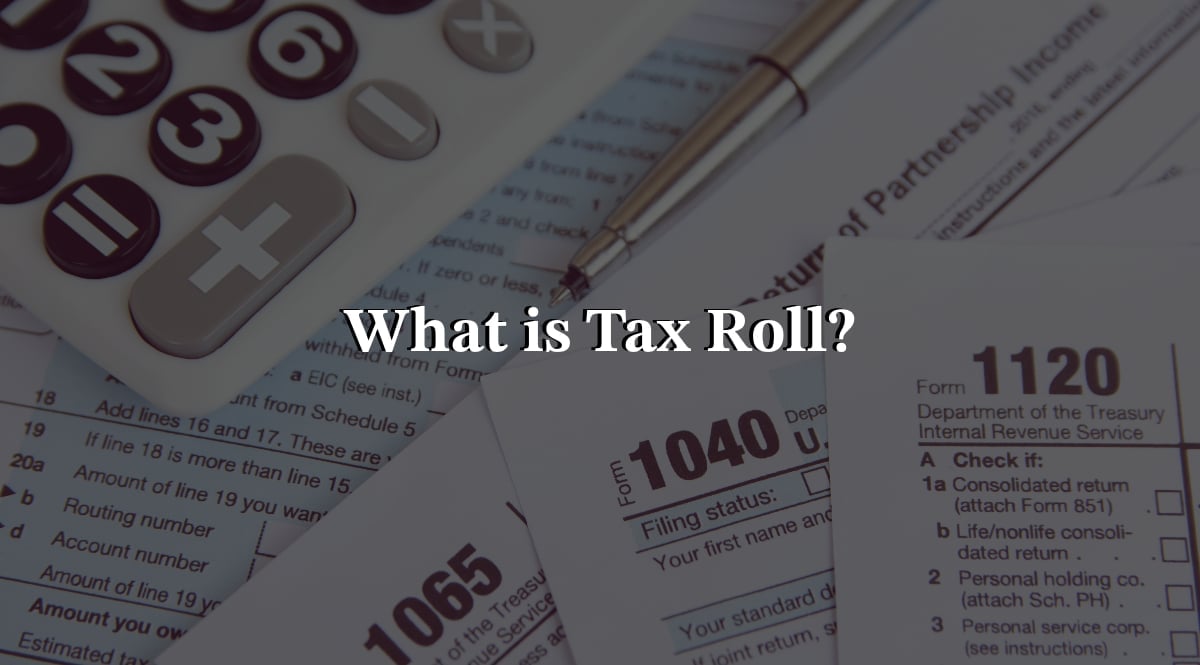
What Is Tax Roll: Your Property Tax Guide
It is quite hard to remember all topics related to taxes. For example, taxpayers may forget, “What is tax roll?”
So, “What is tax roll?” Let’s find out!
A tax roll is an official record maintained by a local government, typically the county or municipality, that contains information about the property values, property owner names, assessed values, and amounts of property taxes owed by each property owner within its jurisdiction.
This document is used by local governments in order to determine the amount of property taxes each property owner owes based on the assessed value of their property.
However, local tax rolls may also be integrated with county, state, and national reporting databases.
The role of tax rolls
Tax rolls provide comprehensive details about a person’s property and the corresponding property tax within a given jurisdiction. These rolls are shaped by the property tax regulations set forth by individual cities, counties, and states to produce revenue.
Typically, they’re compiled on a yearly basis to represent a taxpayer’s annual tax commitment.
It is worth noting that local governments commonly impose property taxes on both residential and commercial properties within their boundaries. Moreover, taxes might also be applied to vehicles and some significant assets.
The revenue from these taxes primarily supports community services and infrastructure. Areas like policing, fire protection, education, water, and sewage systems, as well as road and highway developments, often depend on these funds.
To make a long story short, property taxes function as a kind of ad valorem excise tax. This implies the tax is charged on specific items, and its amount is determined as a percentage of the item’s value. Local authorities have the discretion to impose property taxes on any chosen asset type, and they may adjust the tax rates yearly in line with modifications to their budgets.
Real estate property tax rolls

Now, let’s discuss real estate property tax rolls.
Real estate property tax rolls are official records maintained by local government entities, such as counties or municipalities, to track all taxable properties within their jurisdiction.
The primary purpose of these tax rolls is to ensure the accurate assessment and collection of property taxes, which are pivotal for funding local services and infrastructure.
Here’s a breakdown of the critical components and considerations related to real estate property tax rolls:
Components of a real estate property tax roll:
Parcel or account number: A unique identifier for each property.
Owner’s name: The name of the individual, business, or entity that owns the property.
Property Address: The location or description of the property.
Assessed value: The property’s value as determined by a property appraiser or assessor. This may be based on recent sales data, construction costs, rental income, or other methods.
Exemptions: Any tax reductions or exceptions that the property might qualify for, such as homestead exemptions.
Tax amount: The tax owed, calculated by applying the tax rate to the property’s taxable value (assessed value minus exemptions).
Valuation: Property assessors typically evaluate real estate properties annually or biennially to determine their market value.
Part two

The method used for assessment may vary depending on the property type and local regulations.
Exemptions and deductions: Some properties or property owners may qualify for tax breaks based on various factors like the owner’s age, military service, or disability status. There may also be exemptions for agricultural properties or historic landmarks.
Tax rates: Local governing bodies, such as city councils or county boards, usually set the tax rates based on the budgetary needs of the community.
Multiple jurisdictions (city, county, school district, etc.) may levy taxes on the same property, resulting in a composite tax rate.
Delinquencies: The tax roll also indicates which properties have outstanding tax liabilities.
Delinquent taxes may accrue penalties and interest over time. If not paid, the local government may place a lien on the property or even auction it off to recover the owed taxes.
Public record: Property tax rolls are generally considered public records. This means that members of the public can access and review them, which can be helpful for potential buyers, sellers, and real estate professionals to understand property values and tax liabilities in a given area.
Real estate property tax rolls play an essential role in local government operations by providing a structured and organized means of tracking, assessing, and collecting taxes. These taxes are foundational for supporting community services such as schools, roads, emergency services, parks, and other local infrastructure.
To sum up, it is desirable for taxpayers to remember the answer to the question “What is tax roll?” in order to avoid any misunderstanding when it comes to paying taxes.
The post What Is Tax Roll: Your Property Tax Guide appeared first on FinanceBrokerage.

